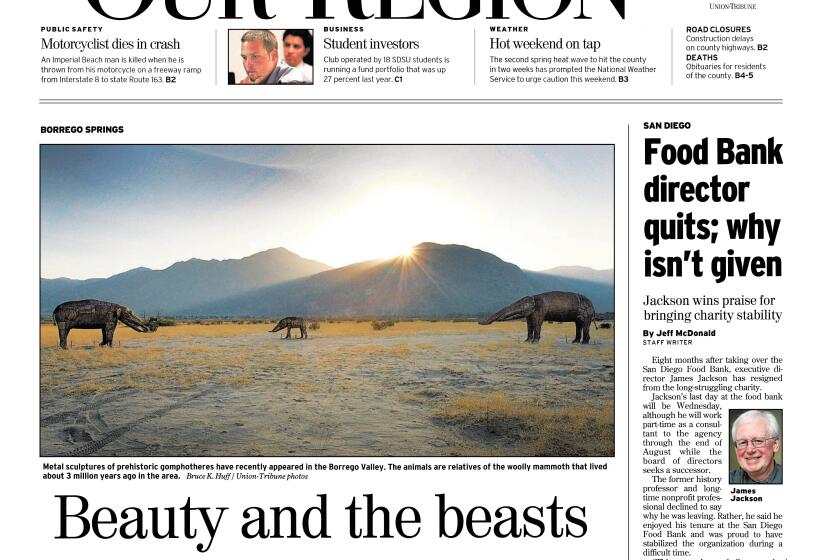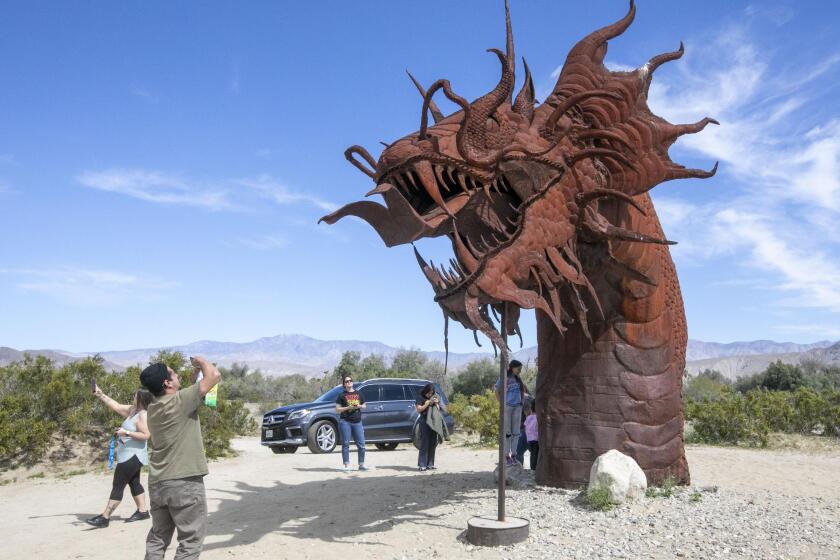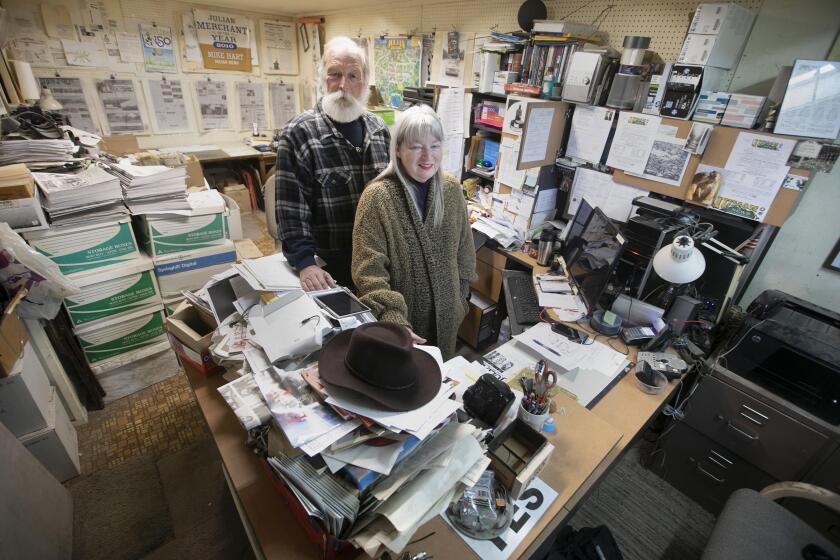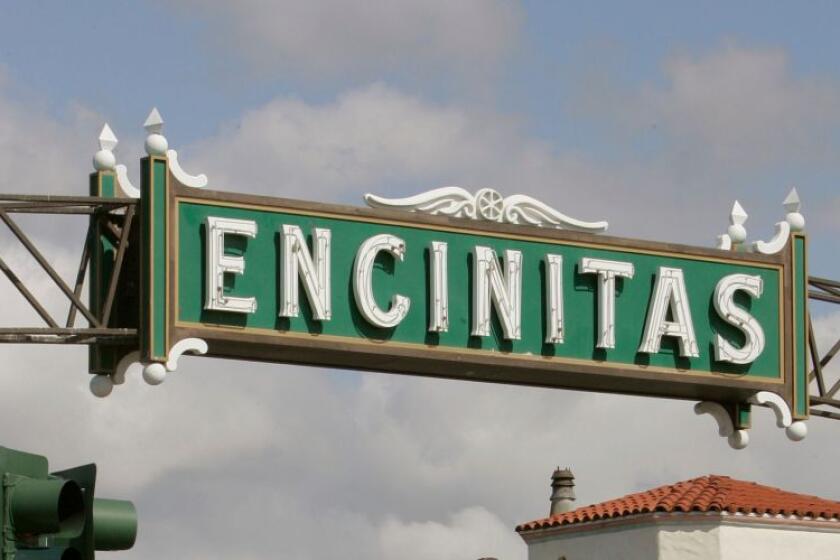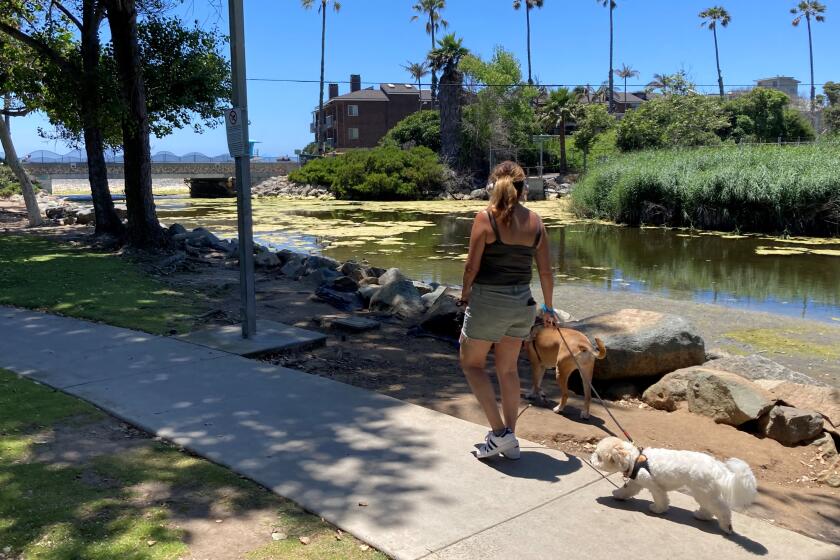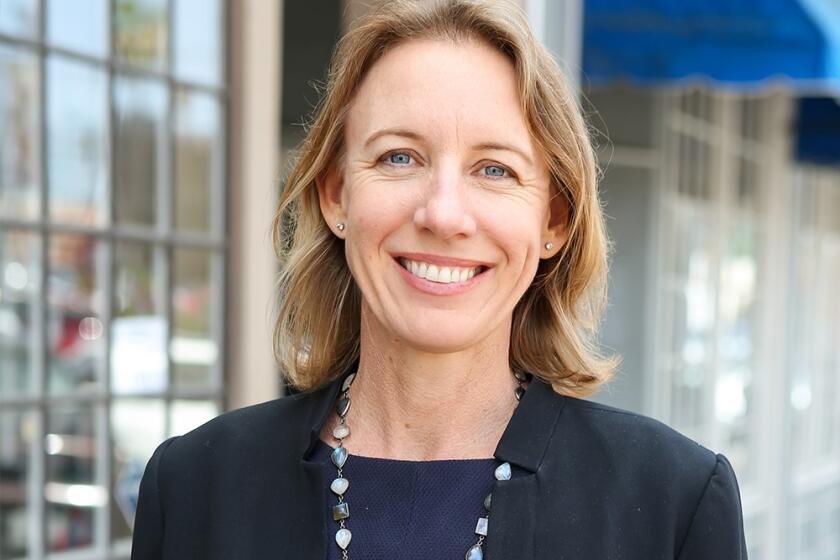County to consider last-minute change in language of ballot question on development
Supervisor Jim Desmond says his aim is to help voters understand intent of measure
Just a day before the Dec. 11 deadline and more than a year after the original language was agreed to, county Supervisor Jim Desmond next week will ask his colleagues to change the wording of a controversial ballot measure that will be voted on countywide in March 2020 concerning future development in the unincorporated areas.
Much like what happened on Nov. 19, when the board voted 3-2 to change the wording of another ballot measure having to do with a development in the North County -- the 2,135-home Newland Sierra project -- Desmond is seeking a change he says will help voters better understand what they are being asked to decide.
If approved, the Save Our San Diego Countryside (SOS) measure would require countywide votes every time a General Plan Amendment was being sought to build large housing projects in areas not zoned for such density.
Supporters say the language Desmond is proposing to use mirrors the political messaging of the building industry.
Desmond Wednesday morning issued a statement:
“The measure would have a significant change on unincorporated land in San Diego County, so I want to ensure that voters have a full and accurate understanding of the meaning and the intent of the measure. This version is more transparent and provides more information about the measure to the voter.”
The ballot language approved by the supervisors on Oct. 9, 2018, after enough signatures were gathered to place it on the ballot, was the same as what appeared on petitions signed by voters.
It read: “Shall this Initiative be adopted for the purpose of amending the San Diego County General Plan to require voter approval for General Plan amendments that increase residential density for property designated by the General Plan as Semi-Rural or Rural?”
The proposed wording change, as outlined by Desmond’s request to the board, reads:
“Shall this initiative amending the San Diego County General Plan to require a countywide vote, in addition to the current county approval process, when any General Plan amendment seeks to add 6 or more homes in rural and semi-rural areas, effective through 2038, excluding purely non-residential developments and developments in villages, located in areas such as Julian, Ramona and Alpine; to prohibit density transfers from higher to lower density parcels; and, to prohibit new Specific Plans through 2038, be adopted?”
The item will be presented to the supervisors on Dec. 10, the day before the deadline for submitting ballot changes. Two weeks ago, during the debate over the Newland Sierra ballot language change, Supervisors Nathan Fletcher and Dianne Jacob cast no votes, saying the wording tipped the balance toward the developer and that changing language at such a late date would set a terrible precedent.
Interestingly, Supervisor Kristin Gaspar, who voted for the Newland language change along with Desmond and Greg Cox, will not attend the Dec. 10 hearing because she will be out of town coaching a cheerleader team at the National Championships in Orlando, her office confirmed Wednesday.
Desmond declined to comment on the possibility that the vote could deadlock 2-2, which would mean the language would not be changed.
Jacob declined to comment prior to next week’s meeting, but Fletcher made his position clear.
“I didn’t think it was right to make last-minute changes to tip the scales of democracy in a direction I opposed two weeks ago and don’t think it is right to tip them in a direction I support now,” he said.
.
Backers of the initiative, which includes many environmental groups, say the building industry holds too much sway with politicians and that it should be the people who make the final decision of whether a big development should be allowed on a vacant parcel in rural or semi-rural parts of the county.
It is expected that millions of dollars will be spent by the building and real estate industry to defeat the SOS measure. Supporters expect to be massively outspent in the coming campaigns leading up to March 3, 2020.
“No on SOS” backers say ballot box planning is abhorrent and that decisions whether to allow developments should be left with elected officials and professional planners. They say the county is in the midst of a major housing crisis and the SOS measure would make it far more difficult to get projects approved. Indeed, they say, developers might not even attempt to win approval for projects that require a General Plan Amendment if it means spending millions of dollars more to go through a public vote.
The SOS measure would impact only future projects, not ones that have already been approved.
Get North County news in your inbox
Top stories from the San Diego North County every Monday, Wednesday, and Friday.
You may occasionally receive promotional content from the San Diego Union-Tribune.

